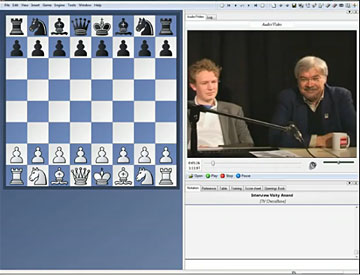Watch out for food poisoning
30 May 2010POSITIVE PARENTING
By Prof Dr CHRISTOPHER BOEY CHIONG MENG
AHMAD arrived home from school looking pale and feeling weak. Holding his hurting tummy, he told his mother that he vomited in school and had had diarrhoea three times.
His mother brought him to the doctor and found that Ahmad was suffering from food poisoning.
 Most food poisoning cases in Malaysia are caused by eating food contaminated with infectious agents.
Most food poisoning cases in Malaysia are caused by eating food contaminated with infectious agents.
Food poisoning happens when there is inflammation of the stomach and/or intestines caused by eating contaminated foods. Usually, symptoms present themselves within two to 24 hours after eating.
Depending on the severity, sufferers of food poisoning may also experience fever and chills, bloody stools, and dehydration.
Although food poisoning is usually a common and mild illness, it can sometimes be deadly, especially in children.
Infectious bacteria are to blame
Food poisoning is usually due to either toxic agents or infectious agents. Toxic agents are pesticides on fruits and vegetables, improperly prepared exotic foods (such as shellfish or barracuda), or poisonous mushrooms.
To reduce the risk of food poisoning, never leave cooked food at room temperature for more than two hours.
Most food poisoning cases in Malaysia however, are caused by eating food contaminated with infectious agents. This means that the food contains harmful viruses, bacteria, and parasites.
These bacteria release poison that causes inflammation of the lining of the intestines. E. coli, salmonella, shigella, and staphylococci are common infectious bacteria which cause food poisoning.
Hygiene keeps contamination at bay
Poor sanitation and improper food preparation are usually to blame for food contamination.
Food handlers should practise good personal hygiene and ensure the food preparation area is clean.
Contamination is also likely to occur when food is not properly stored, or kept at the wrong temperature.
Here are some good food preparation practices to help you prevent food contamination:
1. Prepare food with care
Wash all fruits and vegetables thoroughly.
Do not prepare foods with bare hands if you have wounds.
For raw and cooked foods, separate utensils (knives/cutting boards) should be used.
Defrost foods completely before cooking. Thaw food under clean running water.
Cook foods (meat, poultry, egg and seafood) thoroughly.
Reheat cooked food thoroughly. Bring foods like soups and stews to boil.
2. Serve food well
Serve cooked foods as soon as possible in clean crockery.
Never leave cooked food at room temperature for more than two hours.
3. Store food properly
Separate raw food from cooked food in different packages when storing them in the refrigerator.
Cooked food should be properly packaged and stored in the refrigerator within two hours.
It is not advisable to give your child cooked food that has been prepared longer than two days previously.
When to see the doctor
Food poisoning should not be taken lightly as severe diarrhoea and vomiting can cause dehydration, which is very dangerous, especially if it happens in young children. Here’s when to see the doctor:
Your child is very young (age two years and below:
* Persistent vomiting
* Altered level of consciouness
* Nausea, vomiting, or diarrhoea lasts for more than two days
* Your child also has fever, chills, or bloody stools
* Other family members or friends who ate the same thing are also sick
* Your child cannot keep any liquids down
* Your child does not improve within two days even though he’s drinking large amounts of fluids
* Your child has other immune related disease or illness
* Your child experiences slurred speech, muscle weakness, double vision, or difficulty swallowing
Managing food poisoning
If your child is suffering from mild food poisoning, in which he experiences short episodes of vomiting and minimal diarrhoea, symptoms will usually go away on its own in two to three days.
You can help your child feel better by trying these home care tips:
Do not let your child have solid food until he stops vomiting.
Offer your child water frequently in small amounts to prevent dehydration. You can also add a special oral electrolyte solution (found in pharmacies).
Once vomiting has stopped, slowly reintroduce easy-to-digest foods. You may offer him rice, wheat, breads, potatoes, bananas, or low-sugar cereals.
It is not recommended to give children over-the-counter medicines to stop diarrhoea.
Check what your child has eaten over the pass twenty-four hours.
If in any doubt, seek medical help early.
Prof Dr Christopher Boey Chiong Meng is a professor of paediatrics and consultant paediatric gastroenterologist. This article is not in any way intended as a substitute for medical attention. When in doubt, please consult your doctor. This article is courtesy of the Malaysian Paediatric Association’s Positive Parenting Digestive Health Initiative and the Malaysian Society of Gastroenterology & Hepatology that is supported by an educational grant from Vitagen Healthy Tummies Programme. For further information, please visit www.mypositiveparenting.org. To know more about children’s digestive health, please contact 03-56211408 or 03-56323301 for a free digestive health booklet by the Malaysian Paediatric Association’s Positive Parenting in collaboration with the Malaysian Society of Gastroenterology & Hepatology.
By Prof Dr CHRISTOPHER BOEY CHIONG MENG
AHMAD arrived home from school looking pale and feeling weak. Holding his hurting tummy, he told his mother that he vomited in school and had had diarrhoea three times.
His mother brought him to the doctor and found that Ahmad was suffering from food poisoning.
 Most food poisoning cases in Malaysia are caused by eating food contaminated with infectious agents.
Most food poisoning cases in Malaysia are caused by eating food contaminated with infectious agents. Food poisoning happens when there is inflammation of the stomach and/or intestines caused by eating contaminated foods. Usually, symptoms present themselves within two to 24 hours after eating.
Depending on the severity, sufferers of food poisoning may also experience fever and chills, bloody stools, and dehydration.
Although food poisoning is usually a common and mild illness, it can sometimes be deadly, especially in children.
Infectious bacteria are to blame
Food poisoning is usually due to either toxic agents or infectious agents. Toxic agents are pesticides on fruits and vegetables, improperly prepared exotic foods (such as shellfish or barracuda), or poisonous mushrooms.
Most food poisoning cases in Malaysia however, are caused by eating food contaminated with infectious agents. This means that the food contains harmful viruses, bacteria, and parasites.
These bacteria release poison that causes inflammation of the lining of the intestines. E. coli, salmonella, shigella, and staphylococci are common infectious bacteria which cause food poisoning.
Hygiene keeps contamination at bay
Poor sanitation and improper food preparation are usually to blame for food contamination.
Food handlers should practise good personal hygiene and ensure the food preparation area is clean.
Contamination is also likely to occur when food is not properly stored, or kept at the wrong temperature.
Here are some good food preparation practices to help you prevent food contamination:
1. Prepare food with care
Wash all fruits and vegetables thoroughly.
Do not prepare foods with bare hands if you have wounds.
For raw and cooked foods, separate utensils (knives/cutting boards) should be used.
Defrost foods completely before cooking. Thaw food under clean running water.
Cook foods (meat, poultry, egg and seafood) thoroughly.
Reheat cooked food thoroughly. Bring foods like soups and stews to boil.
2. Serve food well
Serve cooked foods as soon as possible in clean crockery.
Never leave cooked food at room temperature for more than two hours.
3. Store food properly
Separate raw food from cooked food in different packages when storing them in the refrigerator.
Cooked food should be properly packaged and stored in the refrigerator within two hours.
It is not advisable to give your child cooked food that has been prepared longer than two days previously.
When to see the doctor
Food poisoning should not be taken lightly as severe diarrhoea and vomiting can cause dehydration, which is very dangerous, especially if it happens in young children. Here’s when to see the doctor:
Your child is very young (age two years and below:
* Persistent vomiting
* Altered level of consciouness
* Nausea, vomiting, or diarrhoea lasts for more than two days
* Your child also has fever, chills, or bloody stools
* Other family members or friends who ate the same thing are also sick
* Your child cannot keep any liquids down
* Your child does not improve within two days even though he’s drinking large amounts of fluids
* Your child has other immune related disease or illness
* Your child experiences slurred speech, muscle weakness, double vision, or difficulty swallowing
Managing food poisoning
If your child is suffering from mild food poisoning, in which he experiences short episodes of vomiting and minimal diarrhoea, symptoms will usually go away on its own in two to three days.
You can help your child feel better by trying these home care tips:
Do not let your child have solid food until he stops vomiting.
Offer your child water frequently in small amounts to prevent dehydration. You can also add a special oral electrolyte solution (found in pharmacies).
Once vomiting has stopped, slowly reintroduce easy-to-digest foods. You may offer him rice, wheat, breads, potatoes, bananas, or low-sugar cereals.
It is not recommended to give children over-the-counter medicines to stop diarrhoea.
Check what your child has eaten over the pass twenty-four hours.
If in any doubt, seek medical help early.
Prof Dr Christopher Boey Chiong Meng is a professor of paediatrics and consultant paediatric gastroenterologist. This article is not in any way intended as a substitute for medical attention. When in doubt, please consult your doctor. This article is courtesy of the Malaysian Paediatric Association’s Positive Parenting Digestive Health Initiative and the Malaysian Society of Gastroenterology & Hepatology that is supported by an educational grant from Vitagen Healthy Tummies Programme. For further information, please visit www.mypositiveparenting.org. To know more about children’s digestive health, please contact 03-56211408 or 03-56323301 for a free digestive health booklet by the Malaysian Paediatric Association’s Positive Parenting in collaboration with the Malaysian Society of Gastroenterology & Hepatology.
























